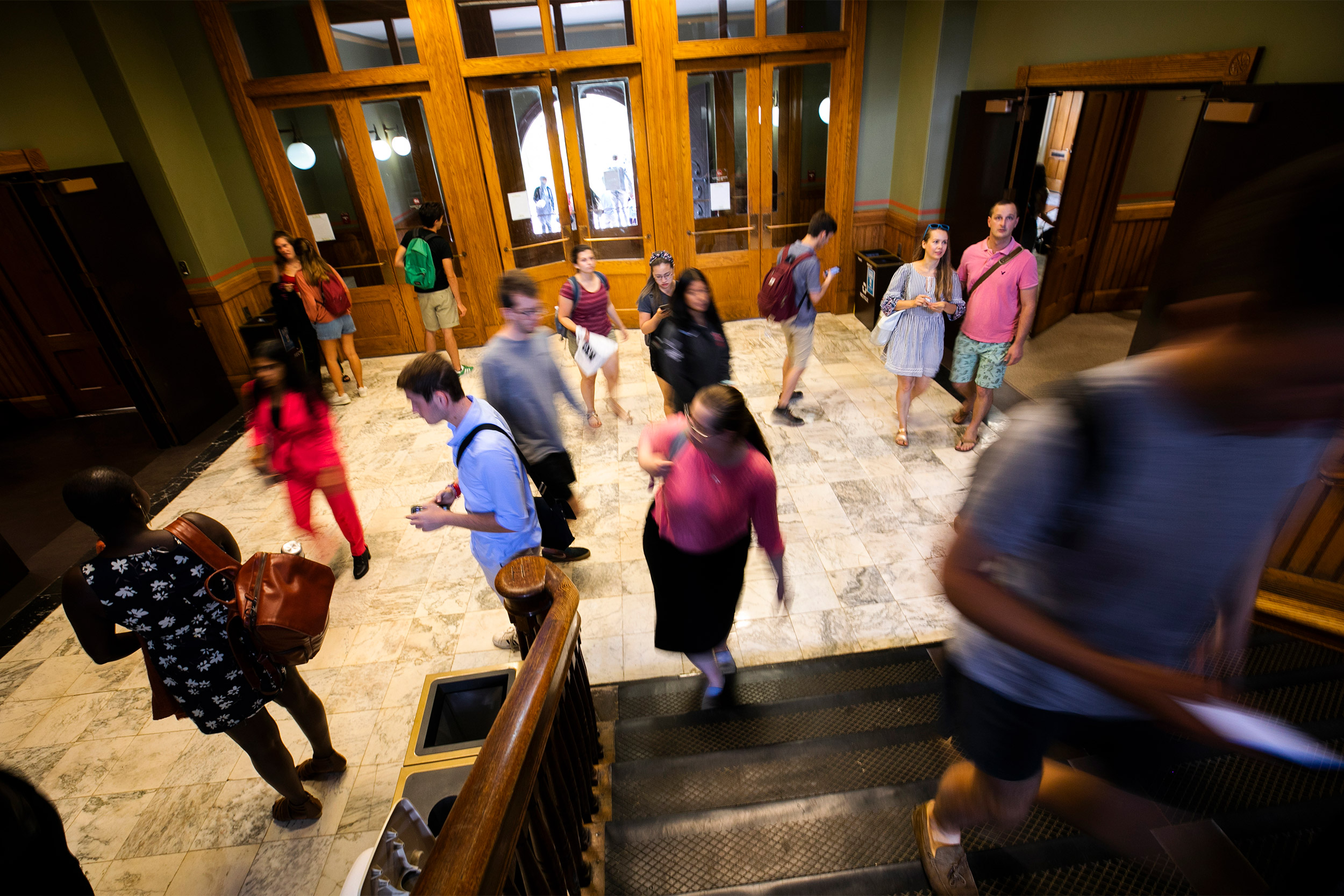
Harvard Culture Lab Innovation Fund will provide competitive grants to pursue projects that aim to advance diversity, equity, inclusion, and belonging at the University.
Stephanie Mitchell/Harvard file photo
New innovation fund launches
Culture Lab offers University-wide grants for tech projects promoting diversity
This week, the Office of Diversity, Inclusion, and Belonging is announcing the official launch of the Harvard Culture Lab Innovation Fund (HCLIF), which will provide students, staff, faculty, and postdocs with competitive grants to pursue projects that aim to advance diversity, equity, inclusion, and belonging at Harvard.
“I believe that the diversity of our community is one of Harvard’s great strengths,” said President Larry Bacow. “We have a responsibility to ensure that each member of our community flourishes so that each can do their best work here. I hope the Culture Lab Innovation Fund serves as a catalyst for creating and embracing new ways we can advance inclusion and belonging across campus.”
“Our vision is that Harvard will be the world’s recognized leader in sustainable inclusive excellence by fostering a campus culture where everyone can thrive,” said John Silvanus Wilson, senior adviser and strategist to the president. “We draw strength from the confluence of cultures on our campus. And, mindful of the kind of true excellence that can only come from diversity, we are working hard to ensure that our community feels a strong sense of belonging at this institution. To that end, the launch of the Harvard Culture Lab Innovation Fund is designed to create an opportunity for everyone to surface ideas that will strengthen our capacity to advance a University-wide culture of belonging.”
For fiscal year 2020, the fund’s theme is advancing diversity, inclusion, and belonging through technology-driven solutions, and it will award grants to provide grants of $2,000 to $25,000, or more for a variety of projects including, but not limited to, research, programs, events, and the development of new databases or technologies.
The criteria for judging submissions include: alignment with the goals of the Presidential Task Force Report on Inclusion and Belonging; application of inclusive design principles, innovation, and measurable impact; and how submissions aspire to the values of “One Harvard.” Applications close in December, and awardees will be announced in April.
“The launch of the Harvard Culture Lab Innovation Fund is designed to create an opportunity for everyone to surface ideas that will strengthen our capacity to advance a University-wide culture of belonging.”
John Silvanus Wilson
Last spring, HCLIF awarded pilot grants to a group of projects to scale existing efforts and test new ideas. One was for a recording tool launched for students in my.harvard, the University’s student, teaching, and advising online portal, called This Is How You Say My Name. Thanks to a President’s Administrative Innovation Fund (PAIF) grant and HCLIF, all students at Harvard can now record their names and make those recordings available to any adviser attached to that student. These recordings are also available in instructor class lists, and the tool recently was added to the human resources dashboard Peoplesoft, so all faculty and staff can also take advantage of it.
The HCLIF grant expanded This Is How You Say My Name across Harvard, and new search functionality developed by a team lead Carolyn Brzezinski, director of enterprise student systems at Harvard University Information Technology (HUIT), will make it possible for queries in my.harvard that could help prep administrators for events such as Commencement.
Another pilot award last spring went to a team from Harvard Kennedy School to make a software platform called Teachly more widely available to the larger Harvard community. Teachly was created in 2015, when HKS Senior Lecturer in Public Policy Dan Levy commissioned a graduate student to help him translate a 23-sheet Excel workbook that he used to get to know his students into a simplified, accessible form. The resulting platform uses data about students, faculty behavior, and in-class interactions to maximize faculty’s understanding of their classroom environment. Ninety-three faculty across the Graduate School of Education, the Chan School of Public Health, and the Kennedy School now use Teachly, and the HCLIF award aims to make that number significantly larger.
HCLIF applications are now open, closing Dec. 6. Visit dib.harvard.edu/clif for more information.




